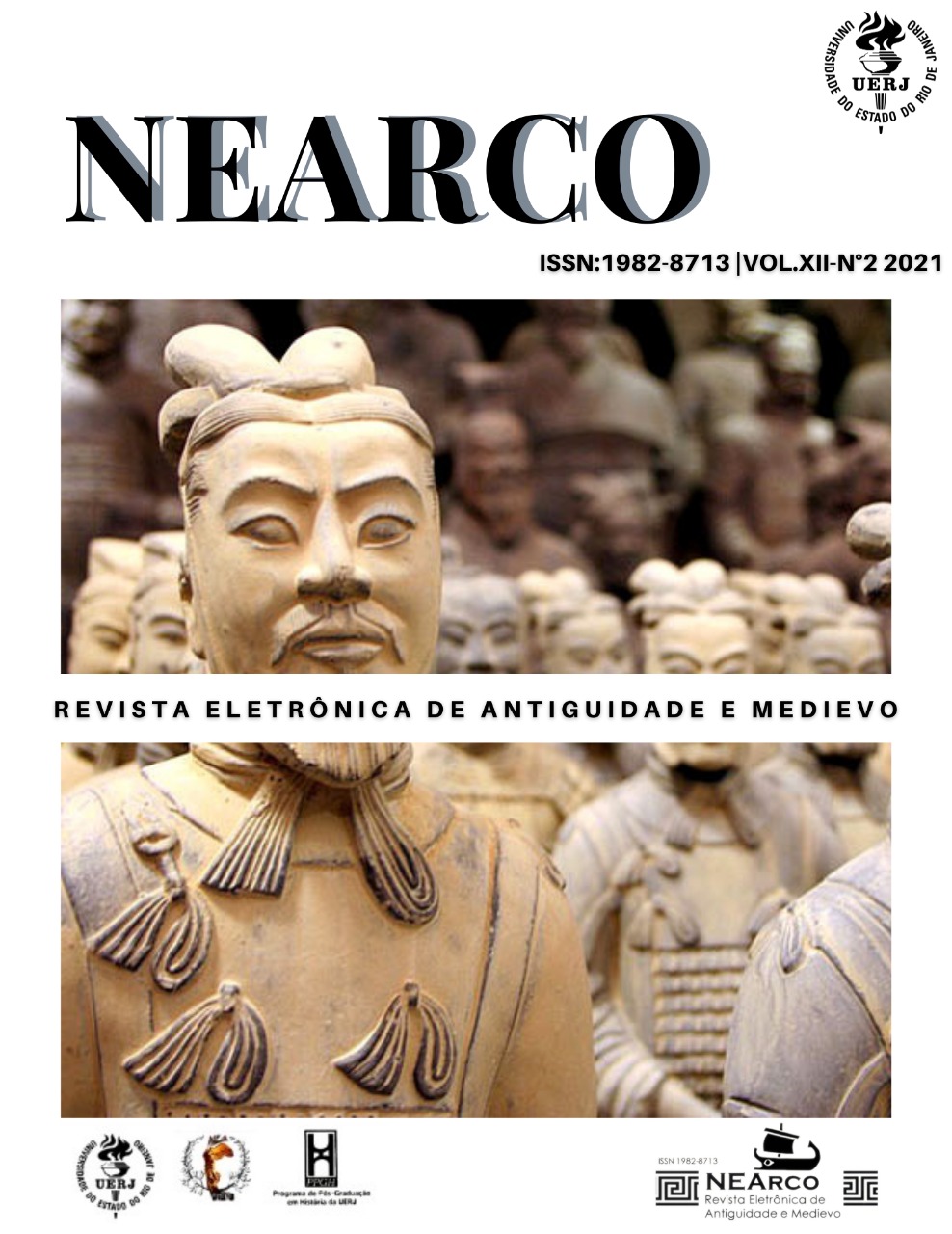CLASSICAL CHINESE PHILOSOPHY AND THE CONCEPT OF QI
DOI:
https://doi.org/10.12957/nearco.2020.57698Palavras-chave:
qi, breath, Chinese philosophyResumo
The concept of qi belongs among the most difficult and complex notions in Chinese ideational history. The present article follows from recognizing that traditional translations of this concept are Eurocentric. The author substantiates the problematic role of these presumptive translations through critical analyses of their methodological approaches, which led to the traditional, falsified understanding of this concept. A new alternative and richer understanding of this concept is proposed, pointing to several different levels of meaning on which it can be understood. The author analyses and interprets the notion of qi including its various philosophical, physiological, psychological end ethical dimensions. The article shows that on the semantical level, qi derives from the etymological meaning of air and is in essence similar to the concept of field in physics, referring to the breath as the origin of the living world. From this perspective, the holistic nature of this notion of breath will be introduced, exposing the dynamic network through which it connects all existing beings in the universe, endowed with life.
Downloads
Downloads
Publicado
Como Citar
Edição
Seção
Licença
Autores que publicam na NEARCO: Revista Eletrônica de Antiguidade e Medievo concordam com os seguintes termos:
a) Os autores mantém os direitos autorais e concedem à revista o direito de primeira publicação, com o trabalho simultaneamente licenciado sob a Licença Creative Commons Attribution que permite o compartilhamento do trabalho com reconhecimento da autoria e publicação inicial nesta revista
b) Os autores têm autorização para assumir contratos adicionais separadamente, para distribuição não-exclusiva da versão do trabalho publicada nesta revista (ex.: publicar em repositório institucional ou como capítulo de livro), com reconhecimento de autoria e publicação inicial nesta revista.
c) Os autores têm permissão e são estimulados a publicar e distribuir seu trabalho online (ex.: em repositórios institucionais ou na sua página pessoal) a qualquer ponto antes ou durante o processo editorial, já que isso pode gerar alterações produtivas, bem como aumentar o impacto e a citação do trabalho publicado (Veja O Efeito do Acesso Livre).

Este obra está licenciado com uma Licença Creative Commons Atribuição-NãoComercial 4.0 Internacional.









